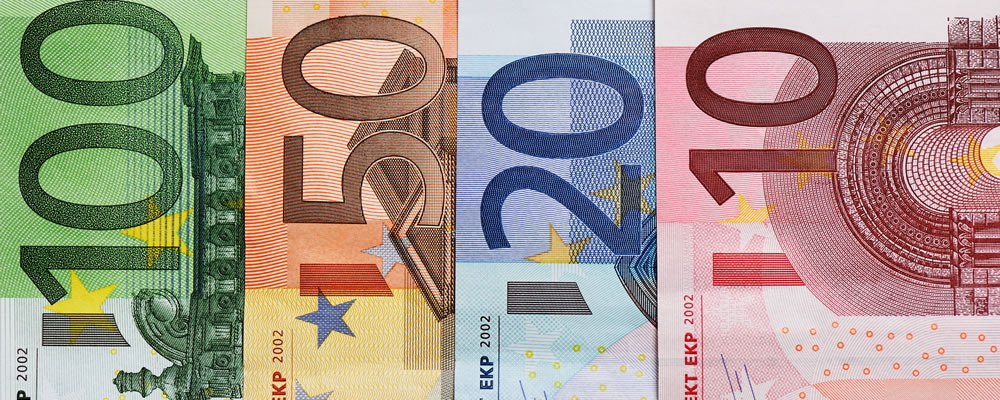Uncertainty over when Bank of England (BoE) Governor Mark Carney would depart his post prompted the GBP EUR exchange rate to fluctuate at the start of the week, particularly as risk appetite weakened.
- Markets disappointed after Carney announces 2019 departure – GBP EUR exchange rate softened as hopes of an eight-year term dashed
- UK Manufacturing PMI fell short of forecast – Worries mounted over health of domestic economy in fourth quarter
- Euro benefitted from softness of US Dollar – Demand muted by speculation over December ECB easing
- Dovish BoE meeting minutes forecast to weigh on GBP EUR exchange rate – Pound to remain under pressure over fears of additional interest rate cut
Despite a lack of fresh Eurozone data the Euro was able to make gains against its rival, receiving a modest boost as investors piled out of the US Dollar.
Weaker-than-Expected UK Manufacturing PMI Weighed on GBP EUR Exchange Rate
Speculation over the future of Bank of England (BoE) Governor Mark Carney prompted some severe volatility for the Pound (GBP) at the start of the week. Ultimately investors were only somewhat reassured by the announcement that Carney would remain with the BoE until June 2019, two years short of the full term that markets had hoped for. This kept the Pound Euro (GBP EUR) exchange rate under pressure, with worries mounting over the apparent deterioration in relations between the central bank and the government.
Further weakness for the Pound stemmed from a disappointing October Manufacturing PMI, which fell short of forecast to dip from 55.5 to 54.3. While this signalled that the sector remains in growth territory it was nevertheless an indication that the economy may have lost momentum at the start of the fourth quarter. As a result the GBP EUR exchange rate extended its downtrend on Tuesday morning.
With fresh Eurozone data lacking the Euro (EUR) has nevertheless been supported by the relative softening of the US Dollar (USD). Jitters are mounting ahead of the results of the US presidential election, encouraging investors to favour the single currency over its safe-haven rival for the time being.
Euro (EUR) Predicted to Strengthen on Improved German and Eurozone Unemployment Data
Demand for the Euro could strengthen in response to the latest German labour market data on Wednesday. While October’s unemployment rate is predicted to have held steady at 6.1% investors are anticipating a modest drop in the number of unemployed persons within the Eurozone’s powerhouse economy. Even a small decline in unemployment could see the GBP EUR exchange rate trending lower, with the single currency likely to capitalise on any positive domestic data.
Should the overall Eurozone unemployment rate for September be found to have dipped in line with forecast then the appeal of the Euro is expected to strengthen further. Even so, confidence in the common currency may struggle to turn particularly bullish thanks to continued expectations of European Central Bank (ECB) easing to come before the end of the year.
GBP EUR Exchange Rate Forecast: BoE Dovishness Expected to Dent Pound Outlook
If the UK Construction and Services PMIs for October show a similar decline on the month then Sterling could come under further downside pressure. Uncertainty over the future of the domestic economy is likely to remain a weight on the minds of investors, particularly if political rhetoric continues to harden. Should economic activity be indicated to have remained robust at the start of the fourth quarter, however, the GBP EUR exchange rate could benefit.
Greater volatility will surround the BoE’s policy meeting on Thursday, even though it seems unlikely that policymakers will make any adjustments to monetary policy at this juncture. More important will be the tone of the accompanying minutes, with any suggestion of a further interest rate cut set to dampen the appeal of the Pound. As Mikael Milhoj, senior analyst at Danske Bank, noted:
‘With respect to its meeting on Thursday, we expect BoE to stay on hold in line with consensus and market pricing. That said, we think BoE will maintain its easing bias stating it stands ready to ease further if needed to support the economy. We think there is more than a 50/50 probability of a cut at the next big meeting in February but it depends on whether the economy slows in Q4.’
Current Interbank Exchange Rates
At the time of writing, the Pound Euro (GBP EUR) exchange rate was trending lower at 1.11, while the Euro to Pound (EUR GBP) pairing was making gains in the region of 0.89.



